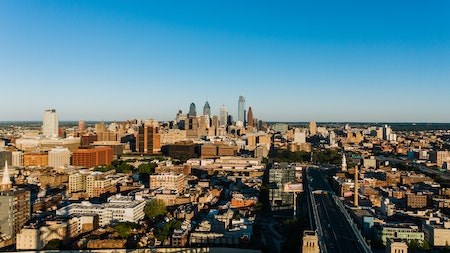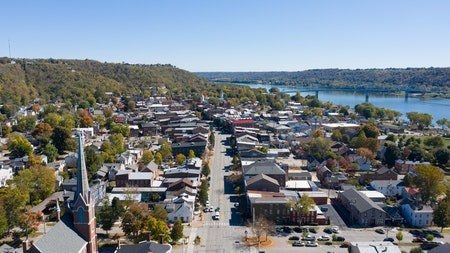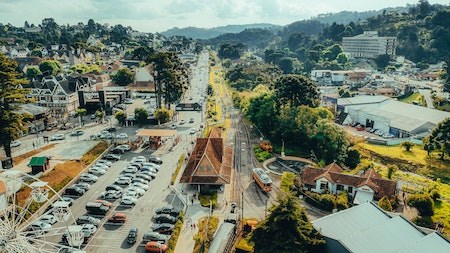According to the latest Rode’s Report, the industrial property market is still performing well, and office market fundamentals are improving. However, offices remain under pressure in most major centres.
Further good news is that flat vacancies are declining, especially in Cape Town, where all property types are performing well.
Rode’s Report editor, Kobus Lamprecht, says this is a welcome positive story in the face of all the bad news.
Overview
Like many other sectors, the property sector continues to be negatively affected by the increased concerns about economic growth – locally and globally - due to higher inflation and interest rates. Concerning the global economy, the International Monetary Fund (IMF) warned on 11 October that the worst is yet to come. For many people, 2023 will feel like a recession.
However, the industrial property market continues to stand strong despite the weakening economic backdrop. This applies particularly to warehouses that are linked to logistics services.
The report shows that green shoots are appearing in the office property market, but fundamentals are generally still poor.
Capitalisation rates of the retail property market are edging up, which reflects the weak outlook for consumer spending. More details on retail trends are available in Rode’s Retail Report.
Flat vacancies and rentals have improved further during the quarter under review. However, real rentals - like house prices - are still in negative territory.
Building‐cost inflation remains in the double digits, making it almost impossible for rentals to grow in real terms. This factor will suppress new developments, says Lamprecht.
Based on Rode’s industrial, office, flats and retail data, Cape Town is outperforming the rest of the country.
Office market
The report shows that the office market continues to be in the worst position of the three major non‐ residential property categories due to its severe oversupply.
Encouragingly, though, the results of the latest Rode survey show that vacancy rates improved further in the third quarter of 2022 while nominal rental growth turned positive. This is further illustrated by Rode’s capitalisation rates declining from high levels. This signifies that fundamentals are still poor but are somewhat improved.
However, Lamprecht advises against too much optimism about the office market given the general expectation of slow economic growth and the work‐from‐home trend, with hybrid working models proving popular.
Regionally, Cape Town seems to be on the mend, although rentals are also edging up in Johannesburg and Durban. However, rentals for all the major cities are still lower than pre‐Covid levels, which indicates that the office market, in general, is still struggling.
Industrial market
The industrial property market continues to be the best-performing category due to its superior rental growth and low vacancies.
Nominal rental growth for spaces of 500 m2 increased by 5,3% compared to the third quarter of 2021. Lamprecht says this property category has been boosted by continued low vacancies, especially for warehouses linked to logistics, which stems from strong online retail sales.
However, this growth is marginally down from its 5,4% in the second quarter, which implies a slight cooling in the accelerating trend observed since the middle of 2021.
Regionally, Cape Town is steaming ahead, with nominal industrial rentals for prime space of 500 m² up by 6,7% year-on-year in the third quarter of 2022. This remains above pre‐Covid levels, as the demand for space exceeds supply.
“This was the strongest rental growth of the major industrial metropoles, despite growth slowing somewhat from the 7,2% in the second quarter of 2022. Cape Town’s industrial vacancy rate also declined further,” says Lamprecht.
Residential market
The report shows that the housing market continues to slow as expected, with nominal prices growing by 3,3% in the third quarter of 2022 compared to the third quarter of 2021, based on FNB data.
This is down from the 3,8% growth recorded in the second quarter as the higher cost of living and rising interest rates start to affect demand. This brings growth to 3,7% over the first nine months of the year - marginally slower than the 4,2% growth for the full 2021.
These results show that house prices are still declining sharply in real terms, with the consumer price inflation (CPI) rate averaging 6,6% so far in 2022.
“At this stage, the interest rate hikes are only having a marginal impact on prices and volumes, as these remain relatively low by historical standards. Banks are also competing for home loans by, for instance, reducing deposit requirements,” says Lamprecht.
“Regionally, activity in the Western Cape was perceived to be the strongest of the major provinces, but even their activity has also slowed.”
Flats
According to Rode’s residential survey data, flat vacancy rates continue to improve after peaking at 13% in the fourth quarter of 2020.
Vacancy rates for the entire country averaged 7,8% in the third quarter of 2022 - down from 8,8% in the second quarter of 2022.
Lamprecht says the improvement in vacancy rates has led to better‐performing nominal rentals, but rental growth is still sluggish. This suggests that most landlords have tried to minimise rental increases to retain tenants.
“Regionally, Cape Town’s flat vacancy rate fell to 4%, much to our surprise at Rode,” he says.
“All in all, house prices and rentals are still declining in real terms in most parts of the country.”
Writer : Sarah-Jane Meyer







